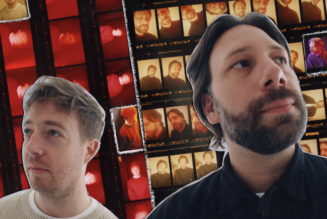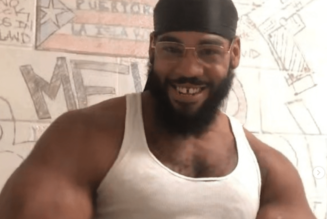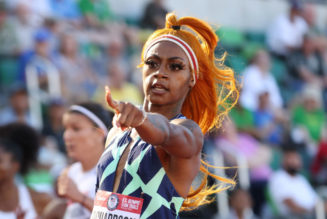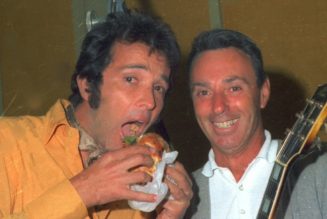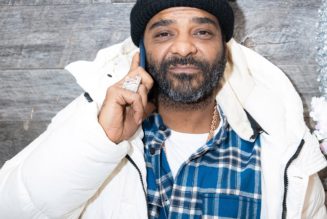
Grant, who has won 26 Dove Awards, is credited with putting Christian music on the map as the first contemporary Christian artist to have a platinum record, the first to hit No. 1 on the pop charts and the first to perform at the Grammys.
When she donned a leopard-print blazer on the cover of 1985’s Unguarded album and scored her first pop hit “Find a Way,” Grant’s move into mainstream music brought criticism from fans who felt she should stick to Christian music. Grant followed with 1988’s Lead Me On, which has been dubbed by CCM magazine as the greatest Christian album of all time, but she didn’t let public opinion sway her from developing a more expansive sound.
Originally released March 5, 1991, Heart in Motion solidified her crossover success. The album received three Grammy nominations, has sold more than 5 million copies and garnered five Billboard Hot 100 top 10 singles, including “Baby Baby,” which hit No. 1. Those songs and more will be available to fans via vinyl beginning July 30, and there is a fan bundle that includes the double disc, an exclusive bonus single disc with commentary, a limited-edition photo book, T-shirt and a Heart in Motion keychain.
Grant, who will head out on a 39-city tour in August, revisited the making of the album with Billboard, as well as talking about her career, surviving open-heart surgery and lessons learned during the pandemic.
What do you remember most about the original launch of Heart in Motion 30 years ago?
If music was some kind of an airborne vehicle, the experience of Heart in Motion was like having rocket engines attached to that vessel. It was the first time I had worked with multiple producers [Brown Bannister, Michael Omartian and Keith Thomas], all of whom I knew and was good friends with, and two great record companies [A&M and Word], wonderful songwriters and musicians. It was a time in Nashville when I don’t know if there was as much of a pop music presence in this town, and so for every door that kept flying open it felt like a shared celebration. It was just so exciting. I worked just as hard on every other record that I made, but that one had the farthest reach in worldwide touring opportunities, in worldwide album sales and really the platform that I still enjoy especially to do different kinds of philanthropy. I feel nothing but gratitude for all the adventure.
What prompted you to use three different producers on Heart in Motion?
Except for doing outside projects, it was the first time I had ever worked with any producers other than Brown and it was [then co-manager] Mike Blanton’s idea. I worked with Michael Omartian on the Peter Cetera record [hit single “Next Time I Fall in Love”]. And then Keith Thomas I had known since the early ’80s. The first time I ever sang with a band at Vanderbilt, in Langford Auditorium, Keith was playing keys. By this time, he’s working as a great producer. Mike Blanton said, “We’ve got to get a record out and we can’t take as much time as we did with Lead Me On, so let’s use three producers. Let’s just create a healthy creative, not competitive, but a fun environment of trying to cast each one of these songs with different producers.”
How were their approaches different?
Brown was all about the live players, Keith was all about programming, and Michael was a combination of the two. I loved that all three of those producers were represented in the top singles: “Every Heartbeat,” “That’s What Love Is For” and “Baby, Baby.” Michael is such a warm, welcoming family guy with a strong Chicago accent and he’s like the father figure. Brown is just like the safest place I’ve ever known to make music. So if I felt I was stretched beyond my comfort zone, I knew that it was going to circle back around and I was going to do a session with Brown. I felt like the whole world got to see the production gifts of a longtime friend of mine that had not been exposed to a world beyond [Christian music]. Then, it’s fun to watch Keith dance while he produces. He does not stop moving and he always sings the parts he wants me to sing, which always led me to go, “Why aren’t you recording this record? Why am I doing it? Because I’m struggling with everything you are asking me to sing.” Working with Keith was a vocal lesson, every session.
“Baby Baby” became such a phenomenon. What was it about the song that resonated so strongly with people?
Keith Thomas was so far ahead of the game with sounds and computers and all that. He was just a phenom looking for a stage to put his skill on, and lucky me that he came to me with the music of “Baby, Baby.” I heard it and just went, “This is the catchiest thing I’ve ever heard.” And all of those sounds that he created — in fact, he was digging through some storage and found the original computer that he used to create those sounds, and it looks like something from the dinosaur age — but it’s just like everybody was given the freedom to use their skill set and have fun.
What was the inspiration for writing the lyrics for “Baby, Baby”?
Keith wanted it to be called “Baby, Baby,” and it just was not in my romantic vernacular: “Hey baby, baby!” You know, I was too much the girl next door, and by then I had my daughter, Millie. I just remember bringing Millie in her car seat and setting her down on the kitchen counter and pulling up a stool right in front of her and going, “I could write this if I could sing it to you.” And I just sat there and wrote those lyrics looking at her little six-week-old face.
With so many great songs on this album, how did you pick the first single?
That song was leaked to a radio station in San Diego that put it in heavy rotation instantly.
Though Heart in Motion is known for such buoyant hits, you also included “Ask Me,” a song about child sexual abuse, which was a topic that wasn’t really addressed in music at that time.
We had the Child Help USA number on the record, if anybody needed it. Those were just the songs I was writing [from] conversations I was having. It was during that time that two different friends, one from high school and one from right out of college, confided in me their childhood experiences. I was like, “What? If this is happening here, this is happening everywhere.” One of my friends, the one that I took most of the conversation from, she just said, “How could you know how I felt?” I said, “I just listened to you and wrote it back.”
What can people expect on the new two-disc Heart in Motion collection?
We wanted to celebrate the 30th anniversary with anything we could lay our hands on that came from that era, and thankfully a lot of people are a lot better at saving things from the past than I am. We were able to uncover some old demos, some live recordings and songs that didn’t make it. On the original liner notes, I quoted the chorus of a song that didn’t make it on the record and somebody had put that song on YouTube [“Don’t Ever Want to Lose It (Wind in the Wire)”]. I barely remembered it and I rewrote the lyrics, and so I went back in the studio and took part of the song that was connected to that record and re-recorded it and that’s on there. The sentiment is still the same and now it’s got a whole new musical bed under it.
How did you deal with the backlash from people who thought you were abandoning Christian music when you began having pop success?
It’s funny, because my experience going through something and what it might have seemed like from outside, I’m sure they are wildly different. When I was making creative choices and branching out and going from just music of faith to a broader audience, this was long before social media and I honestly have never been super curious about other people’s opinions of what I was doing. And that’s really been a blessing.
I didn’t realize when I was a kid that I had bad vision. I didn’t even know it. I didn’t realize I have almost no peripheral vision, so whatever was right in front of me got my full attention. I think that kind of creates a lifestyle of saying, “All you can do is just focus on what is in front of you and they might not like that, but they are just focusing on whatever is in front of them.” Even when I was going through a divorce [from Gary Chapman], I know there were things written, but I would just go buy the rag mags and go, “Oh well.” I have never, ever pursued in any social media, in any way, a thread of curiosity about what anybody said about me. It just takes all your energy to be in the day you’re in, and what somebody is thinking or discussing at a dinner table 500 miles away, it doesn’t matter to me.
What led to your open heart surgery last summer?
I went to the doctor with [my husband] Vince [Gill] because he is in his mid-to-early 60s and his dad passed at 65 from a heart attack. I just went with Vince to his doctor’s appointment and even though he’s like an egg and sausage and cheeseburger kind of guy, the doctor said, “Your heart looks great.” And then the doctor looked at me and said, “We should check you out.” I said, “Well who’s got time for that?” He said, “Make time,” and he was very persistent. He said, “I felt compelled to put you through these tests,” and what they discovered was an undetected birth defect, and I guess it’s a birth defect that would have shortened my life, so he said, “We need to plan open heart surgery and we need to do it before you turn 60,” and I was 59.
Did you have any symptoms? What was the condition called?
It’s called partial anomalous venous return. Blood was not circulating properly and was kind of going to the wrong part of my heart. I guess I did have symptoms, but all we know is our own experience. I feel different than I did before surgery. I feel my breathing is more effective. I had a very irregular heart rhythm and that’s changed. My family calls me the Energizer Bunny. What if I hadn’t gone to that appointment with Vince? What if? What if? But the way it turned out is the way it turned out.
Has that experience changed your perspective?
I feel like I came through open heart surgery with a whole new kind of compassion for people who are battling health issues that are not fixable and they go through things that are scary. I’ve never felt so grateful for teams of doctors and nurses. People that care for the people that are sick are all angels to me.
Last year was such an unprecedented time for everyone. How did the pandemic change you?
Some of the greatest things and greatest connections and best family time and best marriage time I have experienced as an adult happened in 2020. [There were also] some of the saddest loses, unexpected, so much tragedy, so much division in our country. However we saw the world and each other before going into 2020, we were given the chance to see each other differently. To me that was really the greatest gift and the greatest responsibility to come from 2020 — to value the people that are in caregiving jobs and to value the people that make the services that we take for granted. Those people that never got off the hook and I hope that it is a permanent change in our culture, the gift of each other. … And anybody that has ever lived their whole life like a vagabond, we got the gift of time. I loved it. I loved being home. There are hidden gifts in everything.





